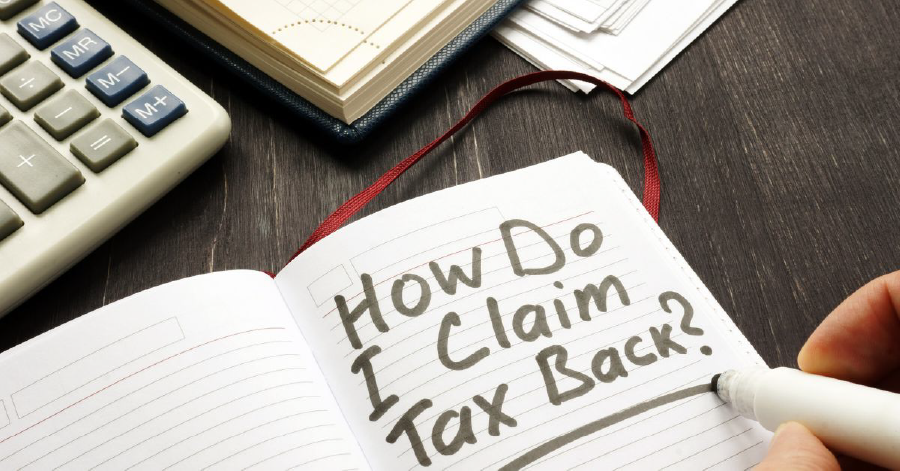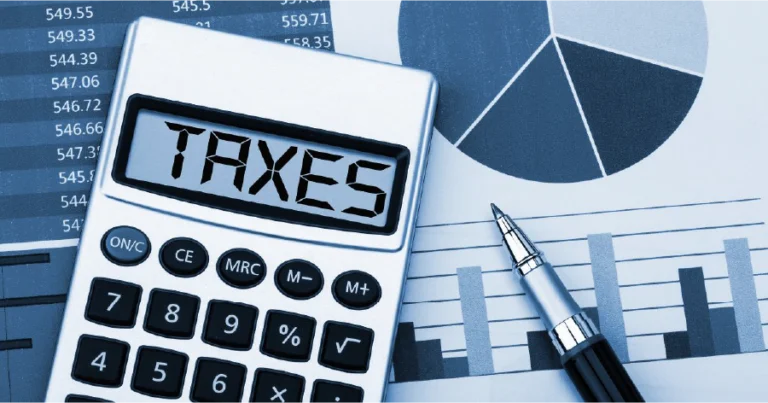Filing taxes can feel overwhelming, but a little guidance from a trusted advisor can make all the difference. In South Africa, many taxpayers – whether salaried employees, commission-based earners or self-employed – miss out on deductions that they’re entitled to. Below we break down some of the less obvious expenses that SARS allows you to claim. Remember to keep receipts and documentation for anything you claim!
Work-Related Clothing & Equipment
- Uniforms and protective gear: If your job requires you to wear special clothing or gear, that’s deductible. For example, nurses can claim their scrubs, miners their safety boots and helmets, and chefs their kitchen whites – as long as they’re not everyday clothes. (Routine shoes or jeans wouldn’t qualify, but government-issue or branded work gear does.)
- Tools and equipment: Tools, gadgets or devices needed for your trade or job can be written off. A mechanic’s toolkit, a tradesman’s power drill, or a graphic designer’s drawing tablet (if purchased for work) may qualify. If it’s a short-life item, you can deduct the full cost (like a calculator or headphones). Larger assets (like computers, laptops or printers) can be claimed via a wear-and-tear allowance over their useful life. For example, if your work requires a new work laptop, you may claim depreciation on it. Keep detailed records of when and why you bought each item.
- Self-employed freelancers: If you run your own one-person business (freelancing, consulting, etc.), these rules are generally more generous. You can claim any business expense that is “produced in the process of earning income” – from software subscriptions to home internet (see Home Office below). Even as an employee, if your contract or employer requires certain gear and won’t reimburse you, SARS usually lets you deduct it (with proof).
- Boundaries: Note that purely personal clothing – designer suits, casual clothes – aren’t deductible. The expense must be specifically for work and not something you’d wear in daily life.
Professional Fees & Subscriptions
- Accountant and tax fees: This one surprises many full-time employees: if you earn only a salary, you generally cannot claim your accountant’s fees or other tax-prep costs. However, if you earn most of your income on commission (or you’re self-employed/freelance), you can. SARS permits commission earners, sole proprietors, rental investors and even self-employed pensioners (if their funds are managed) to deduct accounting or tax filing fees..For instance, a freelance web developer or an insurance broker on commission can claim their tax consultant’s invoice, but an ordinary 9–5 employee cannot.
- Professional membership fees: Fees for a trade union, professional association or statutory body used in the performance of your job can often be claimed. (Be careful: general club memberships or gym fees are NOT deductible.) Keep invoices for your annual subscriptions to, say, a nursing council or a graphic design institute, as SARS may require proof.
- Other contract repayments (Section 11(nA)/(nB)): If you ever had to pay back income that was already taxed (for example, a sign-on bonus, bursary or relocation allowance that you later returned), you can deduct it. Under SARS rules, if a bonus or bursary appeared as taxable income on your IRP5 and you later had to give it back (say you didn’t meet contract terms), you can claim that repaid amount as a deduction. In practice, you “reverse” the tax already paid on that money.
Medical and Disability Expenses
South Africa offers generous tax relief for medical costs – especially if disability or long-term illness is involved. You get a fixed tax credit for medical aid (the “Med Tax Credit”), but beyond that:
- Out-of-pocket medical costs: If you (or a dependent) have medical expenses above 7.5% of your income, you can claim a percentage back as a tax credit. The rate is higher (33.3%) if the person is over 65 or has a disability. For most taxpayers this means keeping track of hospital bills, doctor visits, medication, and therapy costs. (Tip: keep all receipts from your doctor, dentist, physiotherapist, etc. and list them when filing.)
- Disability-related expenses: SARS allows 33.3% of disability-related costs as a tax deduction. For example, let’s say Sarah’s 10-year-old son has autism, diagnosed by a registered specialist. She pays for monthly speech therapy and special coaching for him. Since autism is a recognised disability, Sarah can claim a third of those qualifying expenses (speech therapist, special schooling, equipment) as a deduction. In other words, if she spent Rand 15,000 on necessary therapy for the year, roughly Rand 5,000 can be deducted against her taxable income. (Of course she needs a medical diagnosis and must keep all records and receipts!)
- Example – Special needs schooling: Another common scenario is special schooling for disabled children. If your child attends a special-needs school, SARS allows a deduction for the difference between that school’s fees and what you would have paid at the nearest ordinary public school. For instance, if Special Needs School A charges R 50,000/year and the closest mainstream school fees are R 10,000, you can claim the R 40,000 difference as a medical expense. This often comes as a relief for parents dealing with huge additional costs.
Home Office and Remote Work Expenses
Since many people now work from home, SARS provides for claiming home office costs – but only if strict conditions are met. Here’s the gist: you need a dedicated room used regularly and exclusively for work. If you do non-work stuff in the room (like sleep or watch TV there), it won’t qualify. Also, either:
- Salary earner: Your contract says salary-only and more than 50% of your work duties are done at home.
- Commission earner: If over half your income is commission or performance-related, then more than 50% of those duties must be done from home.
If you meet these tests, you can claim a portion of your home costs. This includes things like rent (if you rent), electricity, rates, water, cleaning, repairs and so on – calculated on a square-meter basis. SARS’s formula is:
(Area of home office ÷ Total area of home) × Qualifying costs
- Example – Leigh-Ann’s home office: To see how this works, consider Leigh-Ann. She’s a freelance content writer who works mainly from home. Leigh-Ann has converted a spare bedroom (10 m²) into her office, and her total home area is 100 m². She lives on R 20,000 a month and works 90% of the time from that office (so she clearly meets the “>50% of duties” rule). Last year, she spent R 18,000 on electricity and internet (because of long research hours), R 12,000 on cleaning services, and R 10,000 on office equipment (a chair and a desk). Because her office is 10% of her home’s floor space, she can claim 10% of those home costs as deductions. In practice, she enters these on her ITR12 under “Other deductions – Home office”. Besides utilities, Leigh-Ann also bought a new laptop and ergonomic chair specifically for work. She will write these off via wear-and-tear allowances: for example, a laptop can be depreciated at 20% per year (or claimed immediately if it’s small enough) as a business asset. Because SARS now has clear guidelines, Leigh-Ann just needs to keep her floor plans, bills and receipts to prove the office is used only for work. (A friendly tip: even a photo of the tidy office setup can help during an audit!)
- Important: You do not need to submit floor plans or photos with your return, but you should have them ready in case SARS asks. And remember, mortgage interest is no longer deductible as a home office expense (as of 2023).
Unexpected Deductions and Special Situations
- Repaying taxed income (Sections 11(nA) and 11(nB)): Suppose you once got a sign-on bonus or a training bursary that was taxed as income, but later circumstances forced you to pay it back (maybe you left a job early or didn’t meet the conditions). You can deduct that repaid amount from your taxable income. SARS treats it as if the income never existed. In simple terms, you “reverse” the tax on the amount you returned.
- Bad debts (commission/invoice not paid): If you earned commission or did work and never got paid (for example, a bonus that was never deposited, or a freelance client who defaulted), you can often claim that unpaid amount as a bad debt expense. The catch is that you must have already included it as income on your IRP5 or business return. By claiming it as a debt, SARS lets you remove the tax on that phantom income. For example, if John left his sales job and didn’t receive the performance bonus he had been promised (but which was reported on his IRP5), he can claim that bonus as a bad debt, reducing his taxable income accordingly.
- Leave travel allowance or travel expenses: (This is more niche now since many companies scrapped travel allowances.) If you earn a travel or entertainment allowance and use public transport or your own car for work trips, you may claim costs against that. Only trips over 10 km from home to office are allowed, and you need logbooks/receipts. Because rules changed recently, it’s best to consult SARS guidelines, but don’t assume home-to-work trips count – they generally don’t for salaried employees.
- Business travel (Self-employed/commission): If you’re self-employed or paid per job, you can claim actual vehicle and travel costs, or a kilometers-rate using an approved logbook. Keep detailed records – this is strictly assessed.
- Retirement annuity contributions: While not “surprising,” it’s worth a quick reminder that contributions to a registered retirement annuity (RA) are deductible (subject to limits). This often lowers your tax bracket.
Keep It Straightforward – But Don’t Miss Out
The key to maximising deductions is documentation and an honest reading of the rules. If you think an expense might help you save tax, check SARS publications or consult a tax practitioner. Always save receipts, invoices, medical reports or contracts to back up your claims. SARS may ask for evidence if they audit, and we’ve seen it pay off when good records are presented.
In sum, the South African tax system does allow quite a range of deductions beyond the basics, especially for commission earners, the self-employed, and those with special medical needs. By treating your tax return like a puzzle – fitting each piece (deduction) into the right spot – you can potentially save a substantial amount.
Stay informed, ask questions, and remember: claiming the deductions you’re entitled to is not cheating the system, it’s using the rules to your advantage. Now, go forth and file with confidence!



